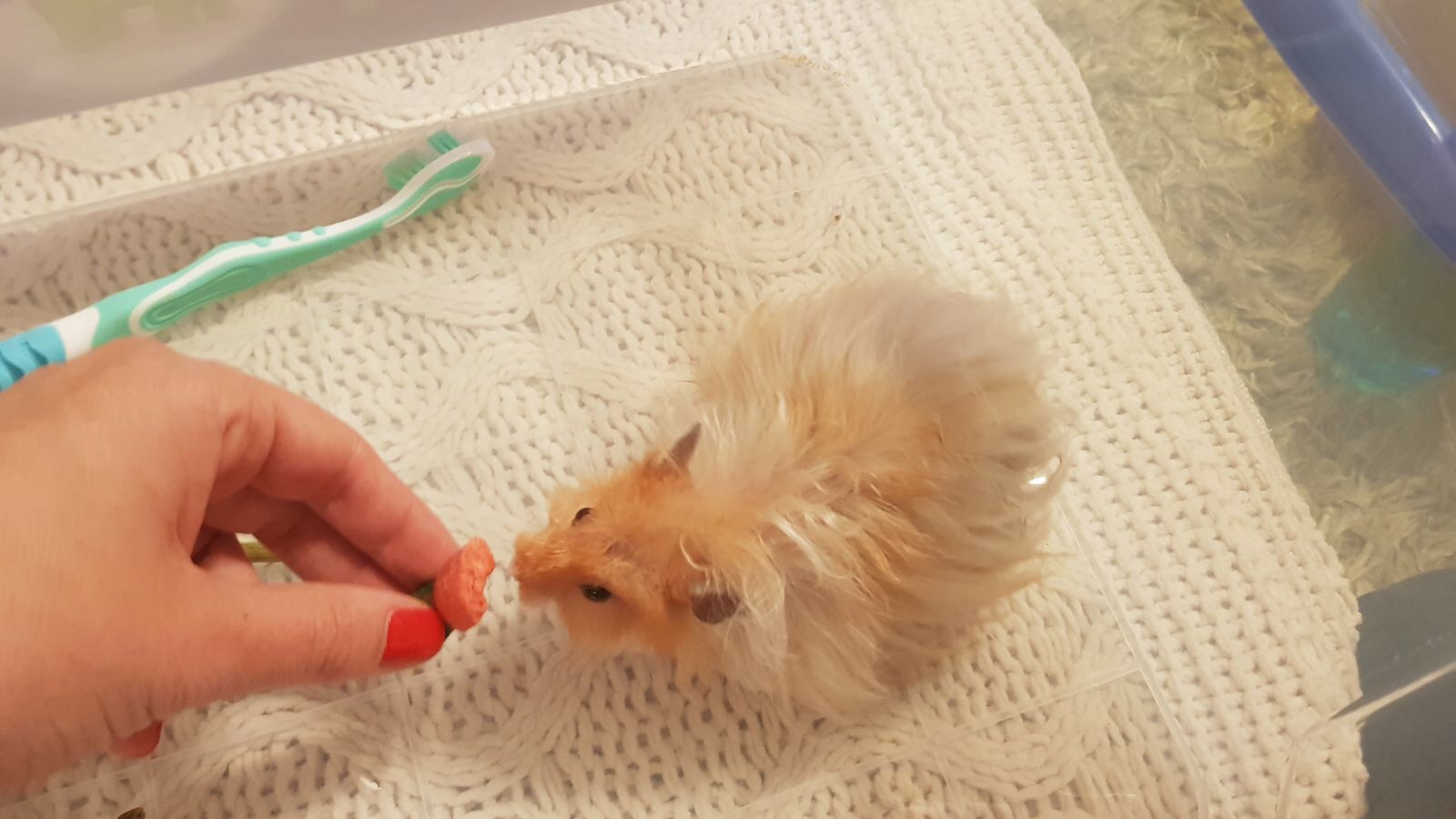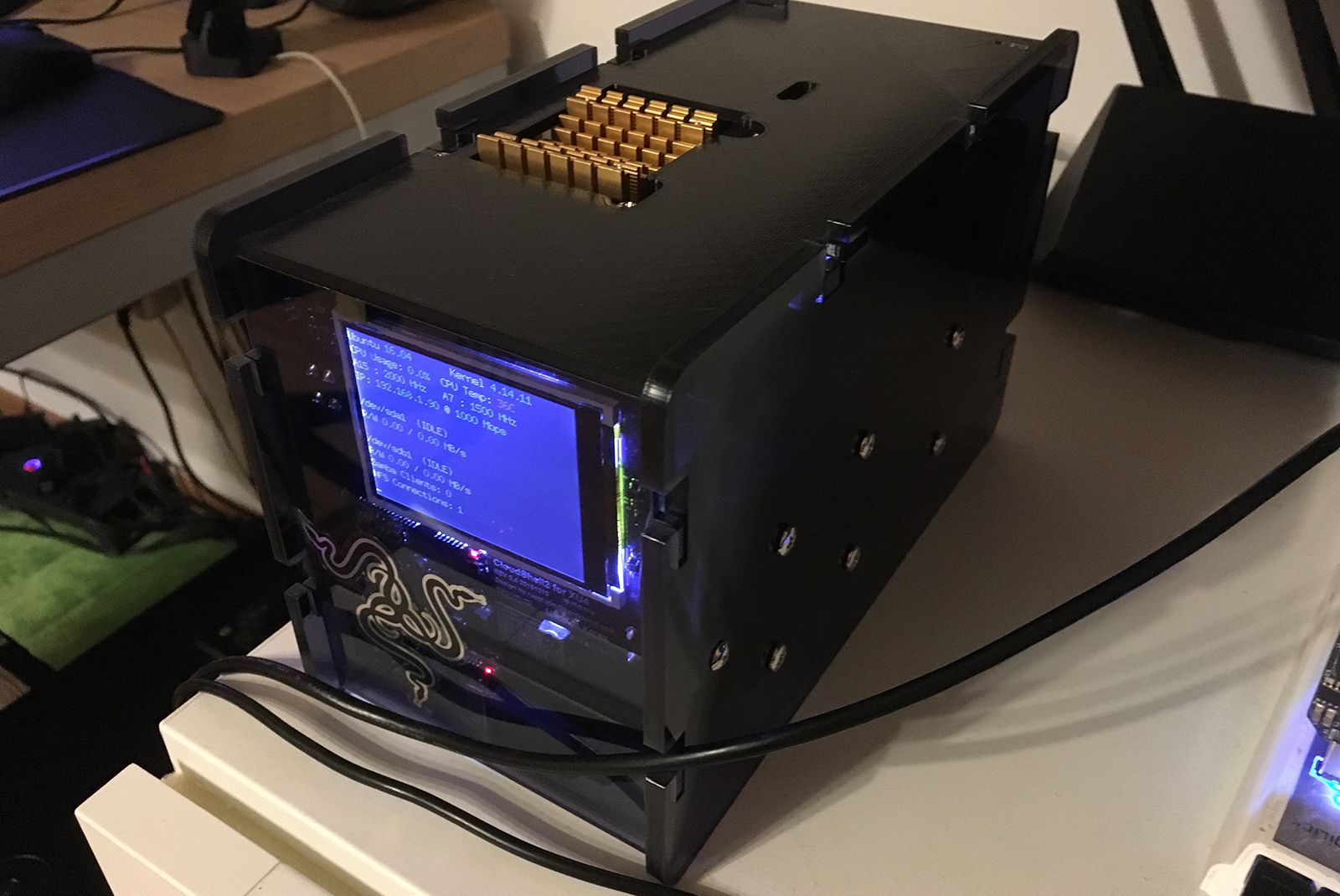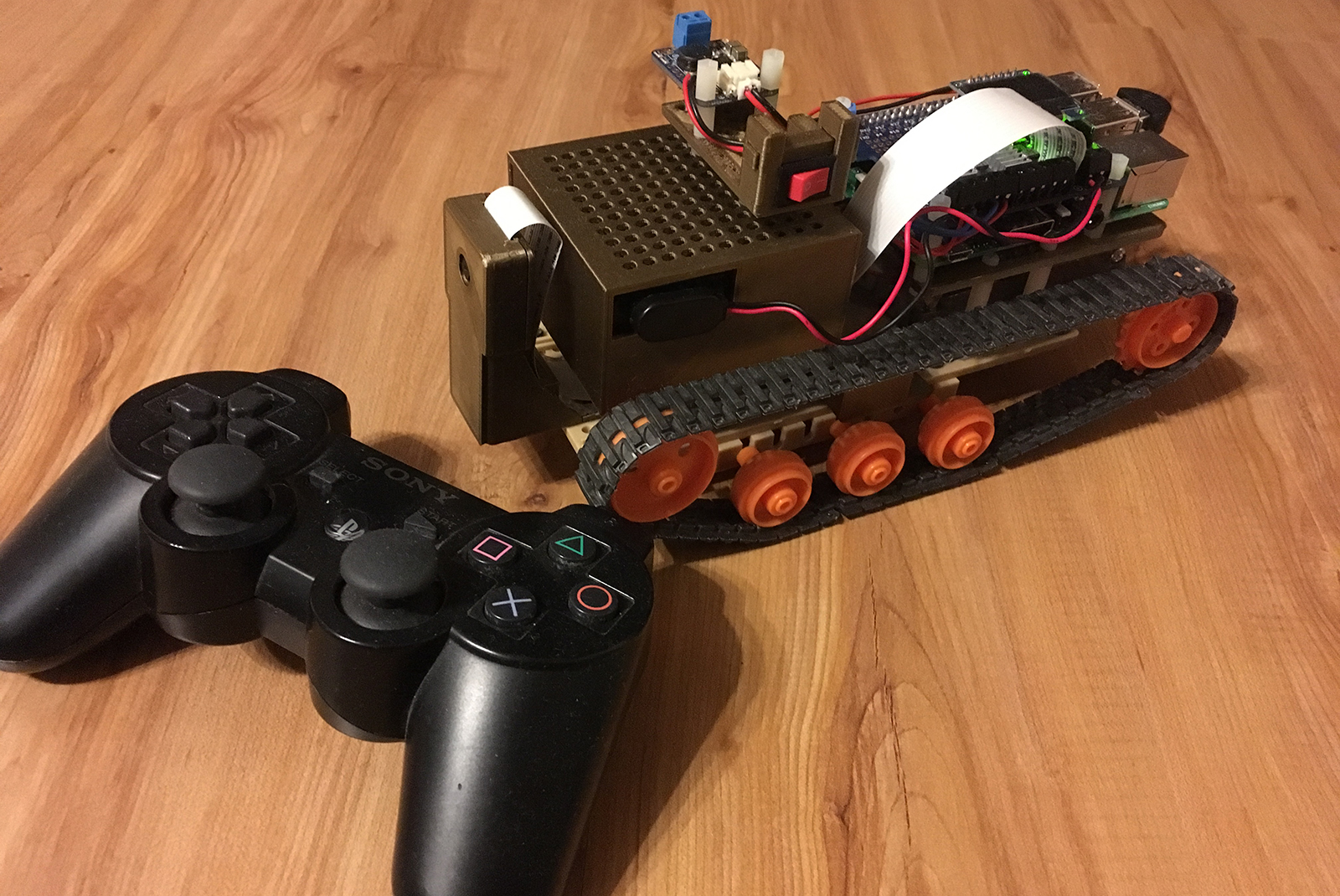
Please tell us a little about yourself. I’m a 34 year old software developer from Bucharest, Romania. I graduated from the Polytechnic University of Bucharest with a degree in computer science. My job title is “blockchain developer”, but that means I mostly develop software in Java, Javascript and Go. My team focuses on the enterprise market for blockchain applications. My main programming language used to be C++ but times are changing. My wife works for a large telecom company as a business analyst, so we are a family that spends a lot of time with screens.

How did you get started with computers? I got my first computer for Christmas sometime in the early 90s and it was a HC90 Romanian computer, i.e. a Sinclair ZX Spectrum clone (Z80 CPU). A lot of people my age got started on those by programming BASIC. I mostly played games on it, and did some childish programming using the included BASIC interpreter.
What attracted you to the ODROID platform? I like the raw computing power. I was already familiar with single board computers (SBCs), since I have played with quite a few of them, but when you start running more and more services on them, they show their limitations. As far as I can tell, the ODROID-XU4 is still the most powerful ARM SBC for general server stuff. How do you use your ODROIDs? My ODROID-XU4 is my general purpose Network Attached Storage (NAS), using a Cloudshell2 enclosure and some Logical Volume Manager (LVM) magic to make the storage easily extendable. I run quite a few media-centric services on it like Emby, Sonarr and Radarr. I also host my WordPress blog on the XU4 (https://www.cristiansandu.ro/). It also has a homebridge service for connecting some Philips Hue lights, as well as a custom service that I wrote which uses the IR receiver to execute some commands when I press a button on my TV remote for dimming and turning off the lights. I probably forgot something, but the ODROID-XU4 just keeps on giving. I used to also experiment with Docker containers on it, but I think it needs more RAM.
My ODROID-C2 has the boring job of being a media center running LibreELEC, and is hooked to the TV for all our media needs. I used to also have an Ambilight-like setup using an Arduino as a driver for the LED strip, but it didn’t prove to be very popular in our living room. I plan to redo the setup with some SMD LEDs.
My older ODROID-C1+ got repurposed as a PiHole device to filter out ads and other evil things on my home network. I also use it to experiment with hardware sensors, such as a system to control my AC that I built last summer. It’s sort of a staging device for new services, and it runs DietPi so that it can be as lean as possible.
My even older ODROID-C1 has the job of being a Lakka TV console, but it doesn’t get a lot of attention lately, so I will probably move it to some other task. I used an ODROID-HC1 as a secondary backup NAS and a WordPress server. Unfortunately, due to some water dripping on it (don’t ask!), it died.
Which ODROID is your favorite and why? My ODROID-C2 is the frontend for my media, so I like it a lot, but the ODROID-XU4 is clearly the powerhouse of my setup, so the ODROID-XU4 is so far the best ODROID for me, especially with passive cooling because I don’t like fans.

What innovations would you like to see in future Hardkernel products? Hardkernel is already doing a great job, and I can clearly see the NAS/media center applications for your products, but I also think there is some space for more gaming related stuff, specifically portable gaming. I really liked the community project of a portable console built around an ODROID-C0. Right now, I am also looking at portable solutions for game streaming from my home PC using Moonlight. I am not sure if it’s an innovation, but I would like a fancy serial camera port on ODROIDs so that I can connect compact camera boards for robots and other purposes.
What hobbies and interests do you have apart from computers? What, there is a world outside of computers? I am also very invested in 3D printing. I own an Original Prusa i3 MK2, which I use to create cases for my ODROIDs and the occasional Baby Groot bust and more. I also used it to build parts for my custom roving robot. The robot can be controlled via a web interface as well as with a PS3 controller.

My interest in 3D printing probably came from my interest of messing with electronics, which started initially with just Arduino and similar microcontroller based stuff along with SBCs, but now I am trying to learn more about discrete parts and Integrated Circuits (ICs) and how it all works.
Like most everyone, I like travelling, and I think I get around quite a bit. Someday I hope I to visit Japan as I am fascinated by their culture and their video games. I don’t read as much as I want to, but it’s definitely an interest. I try to read fiction and not just non-fiction or technical material.
I am also probably addicted to TV shows, specifically Sci Fi/Fantasy shows. Is that a hobby? I enjoy movies, too, and I’ve seen hundreds of them, and there are many more hundreds that I want to see.
What advice do you have for someone wanting to learn more about programming? I do most of my personal projects in Python, and I feel that’s a very good programming language to get started with. There are a ton of sites that teach programming these days, but I think you should get into programming as a way to do something that you are passionate about, like designing your own smart washing machine. These days, you can run MicroPython, which is a variant of Python, on ESP8266/ESP32 microcontrollers and combine the ease of use of Python with the fun of electronics projects. If that’s something you are curious about, start there. I find that I am always motivated when I can see an end goal to my learning, such as discovering that I can build a robot with Python!

Be the first to comment